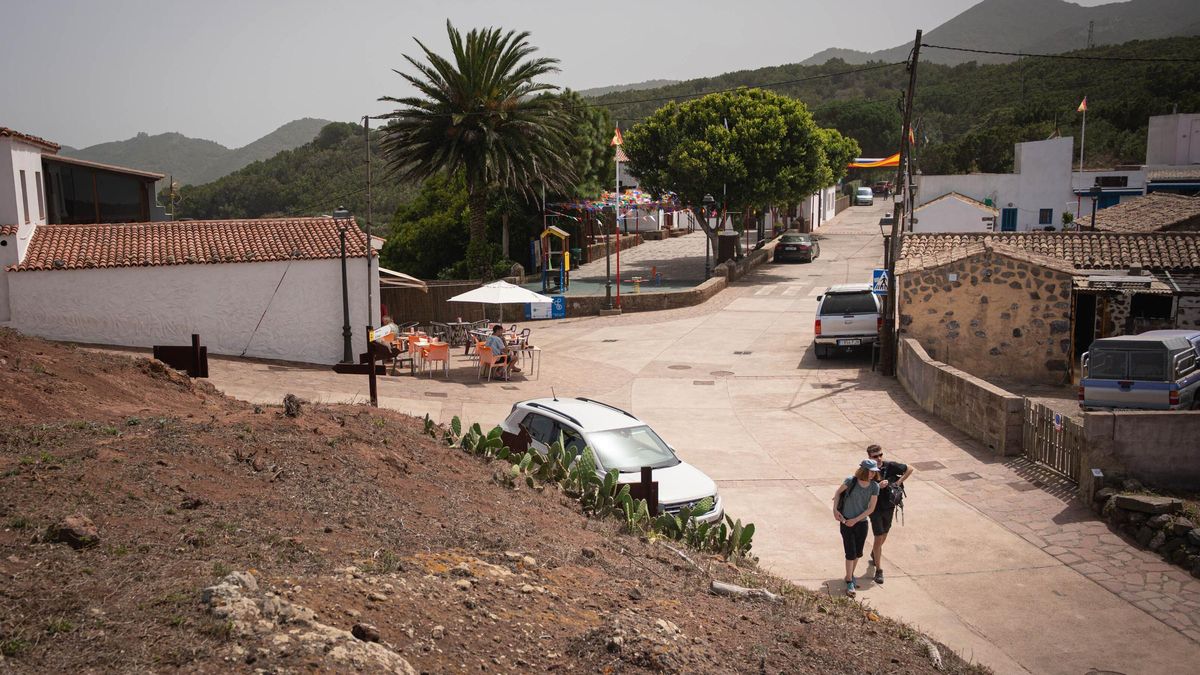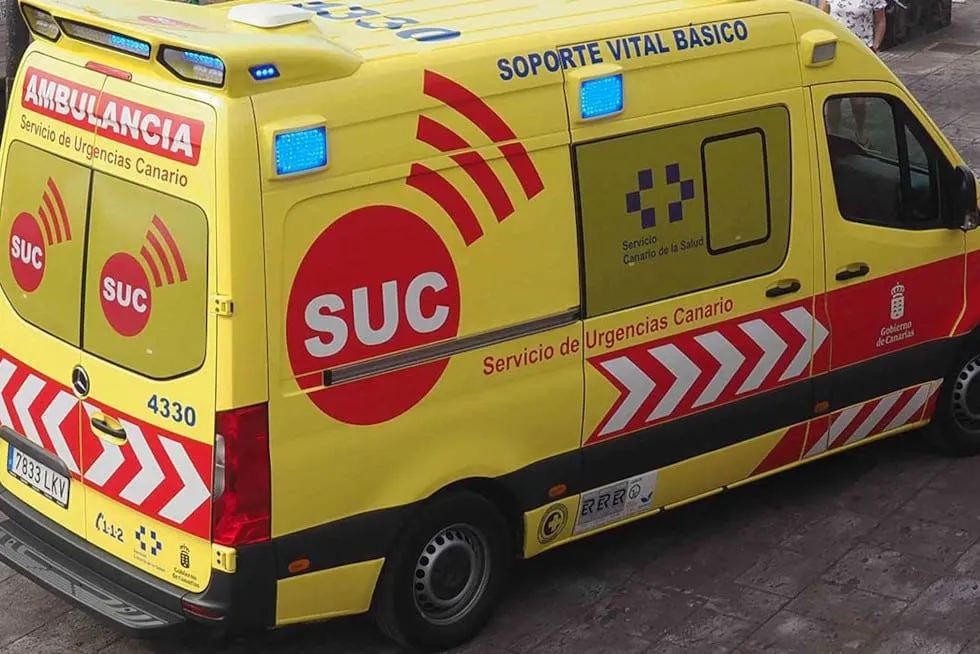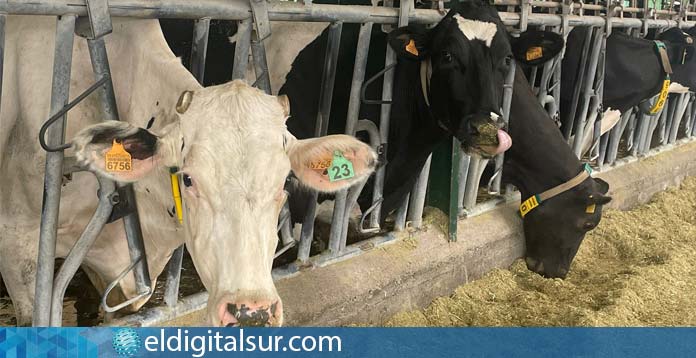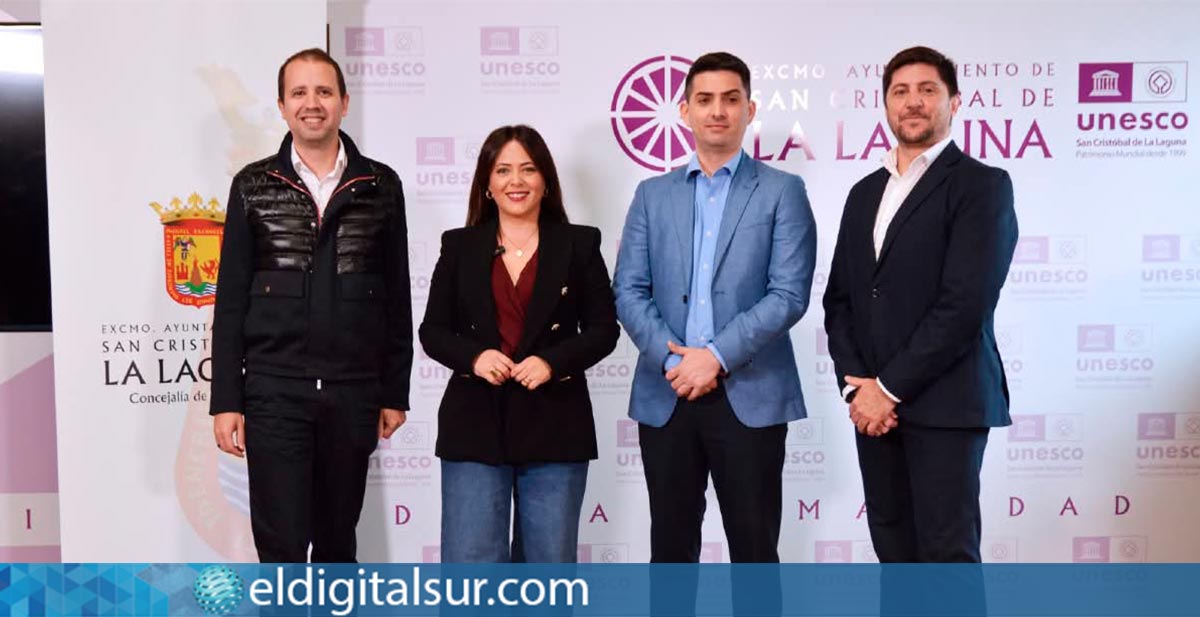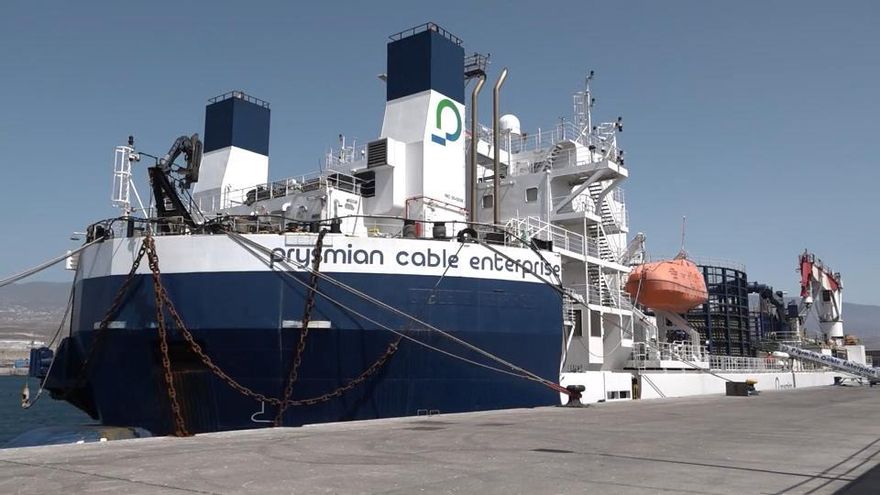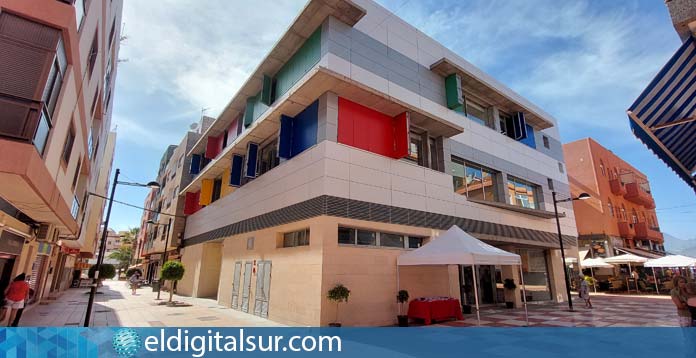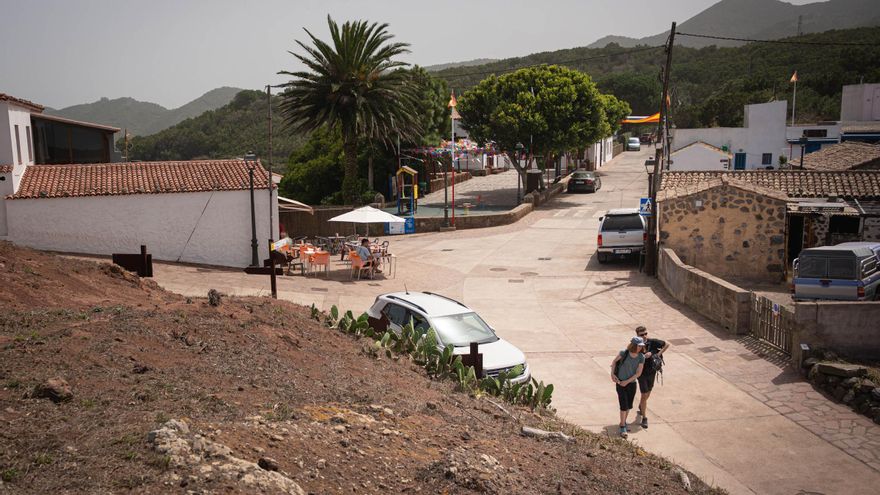
Isolation has traditionally been regarded as negative. However, for Teno Alto in Buenavista del Norte, located at an altitude of between 750 and 900 metres within the Parque Rural de Teno, this isolation has brought some advantages. One reason for this remoteness is the lack of road access. Until 1972, the only way to reach this area was via the Camino del Risco, a steep path climbing near the Bujamé ravine, which served as the sole means of communication with the local town.
Through this path, the residents of Teno Alto made their way up and down for various reasons: to barter, get married, or even to be buried. This led to the preservation of communal coffins that are still preserved in the Roque de la Cruz. These were tools used to transport the deceased back to the village.
“About 30”
As of 2025, according to the municipal census from the Buenavista del Norte Town Hall, 54 people reside in the area. “It’s nothing like before,” remarks Justo Acevedo, owner of Los Bailaderos, the only bar still operating in Teno Alto. Acevedo claims that currently only about “30 people, more or less” actually live here. “When my father opened the bar in 1988, the customer base was around 150,” he recalls, serving several hikers of both foreign and mainland origin.
Valerio del Rosario, the owner of El Cardón NaturExperience, is a keen observer of this territory. His grandmother was from the area, and by chance, he dedicates much of his professional work to Teno Alto. “The village remains untouched by the development of Tenerife and its preservation is something to celebrate. Nevertheless, several issues such as rural depopulation and an ageing population complicate the continuity of the area’s primary economic activity: sheep grazing and goat farming,” he states.
Cheese and Goat Meat
The signature dishes at Los Bailaderos include cheese and goat meat. The owner proudly serves it: “This is the culinary tradition my parents established, and I have continued it. I focus on using local produce,” he explains.
The uniqueness of Teno Alto lies in its goat farming and the cheese it produces. “Cheese is the driving force“, says Alexander López, a goat herder and owner of the cheese factory Naturteno. He has been running this enterprise for over a decade, establishing it as a local standard for this product in Canarias. He has received numerous awards for small-scale, quality production. He raises 200 goats and a few sheep for occasional blends.
Generational Transition
López took over from his grandparents. He inherited a territory where La Gomera can be seen on clear days, located on the southern slope of Tenerife; looking to the right, one can also admire La Palma as the sun sets.
During the grazing season, he allows the flock to sleep in freedom and collects them at dawn. The beginnings were tough, and the winters have not been easy either. “There used to be winters; now there are hardly any,” he laments. His concerns also include the generational transition of an activity he believes has limited years left. There are only four legal goat farms in Teno Alto. Grazing and cheese production are two interdependent economic activities. Should they cease to exist in this village, a significant heritage legacy would be lost.
The grazing methods practiced by the owner of Naturteno are those employed by the aboriginal inhabitants before the conquest of the Canaries. The Teno massif and the Daute region were among the territories that offered the most resistance to the Castilians. Once again, isolation helped preserve local essence.
Without Bus Service and Poor Internet Connectivity
However, not everything is positive: the bus service from Titsa does not reach this area. “It used to function for a time, but the schedules weren’t ideal,” confides Carmen Rosa Verde, manager of the multitienda Dauteno. According to Verde, the bus only had a couple of return trips daily, which led to its lack of success. Carmen Rosa lives in Teno Alto and until recently, her children also lived there, growing up in the area. “They adapted to life here and were happy children. Now one works away, and the other has just left in search of better opportunities,” she explains.
In this respect, Del Rosario is clear that to encourage people to live in Teno Alto, basic services must be improved: “Good public transport or Internet is something any citizen in Tenerife has. Why can’t someone here have it? We’re talking about an economic activity that sustains the food sovereignty of many other residents on the island. We need to facilitate access for these people,” he advocates.


